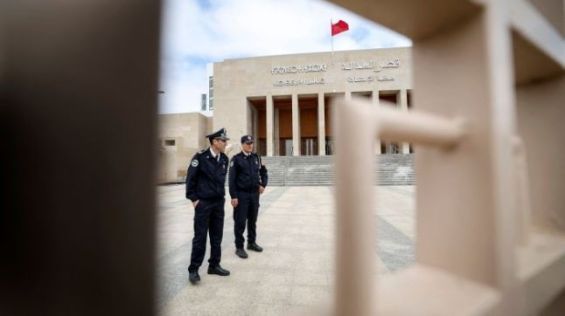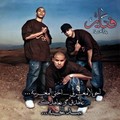In Morocco, news of content creators being arrested or put on trial has become increasingly common. Within the span of just two weeks, YouTuber and mother of three, Aicha Sraidi, known online as «Houyam Star», was remanded in custody, while fellow content creator Reda Bouzidi, best known as «Weld Chinouya», was handed a three-year prison sentence.
Just weeks ago, Ilyass El Malki, another Moroccan streamer with a significant fan base, was sentenced to four months in prison for indecent exposure, following an earlier acquittal of charges related to inciting hatred and discrimination. These initial accusations stemmed from complaints by Amazigh associations, which were later withdrawn. The streamer, who was selected to represent Morocco in the Kings League—a seven-a-side football league in Barcelona—had previously served a prison sentence for assaulting a fellow YouTuber in a video shared online.
Many more Moroccan YouTubers have faced prosecution for defamatory content shared on their platforms. Are these incidents mere slips of the tongue or deliberate strategies to attract followers, advertisers, and controversy in pursuit of greater gains?
Marouane Harmach, a digital communication expert, spoke with Yabiladi to explore the reasons behind the proliferation of such content on Morocco's social media scene. He also shared insights into how this sector could be regulated to strike a balance between preserving freedom of expression and protecting the dignity and privacy of Moroccans.
Can you give an overview of the current content creation scene, which is seen by some as spearheaded by defamatory and unethical content ?
Social media has evolved from merely a communication tool to a lucrative platform for earning money. Initially, this started with coming up with an idea, being creative, and producing content that resonates with your followers.
Social media platforms rely on ads to generate revenue. These ads are used by brands to attract and engage users of a particular platform. In turn, these platforms have decided to share part of their earnings with content creators, encouraging them to produce even more content.
There is even competition between platforms over which one pays more to content creators. The latest player in this trend, TikTok, has simplified this process, making it more enticing for creators.
At first, content had a certain quality, which attracted creators to produce more. However, as the base of content creators has grown, the quality of content has noticeably declined. Even the audience consuming this content shares responsibility for the rise of such trends. For example, some influencers’ behavior, speech, and actions are unacceptable by societal standards. Unfortunately, these profiles have monopolized the influencer scene in Morocco, offering little value or meaningful content.
What fuels the popularity of this content that is often defamatory and of low quality ?
Another issue is the social media algorithms, which are not particularly smart. These algorithms do not evaluate or analyze content quality. Instead, they prioritize metrics like shares and reach. Shock value often drives engagement, even if the reactions are negative. Algorithms merely see high engagement and continue to promote such content to more users.
This has opened doors for a new type of advertiser—those who were previously unable to afford traditional advertising platforms or were limited to methods like distributing flyers and stickers. These advertisers, such as wedding planners, sellers of imported goods, and hairdressers, find these kinds of influencers to be an effective way to reach their target audience. Unlike large institutions or corporations, these advertisers don’t impose strict standards for their marketing. As a result, influencers have found a lucrative market with these advertisers, often prioritizing fame over ethical considerations or product quality.
Some influencers have even introduced products and behaviors unfamiliar to Moroccan society, such as «lehssa» (a product taken to gain weight). This phenomenon is further fueled by the lack of regulation and oversight, allowing such content to flourish unchecked. While this issue is prevalent in Morocco, it is not unique; similar trends can be observed worldwide.
Aren’t influencers aware of the legal repercussions of defamatory content, or has this become a trend ?
There is a saying: «Those who think they can get away with it will do bad things». When people disregard the consequences of their actions, they often cross ethical or legal boundaries.
Many of these individuals lack education or awareness of the implications of their behavior. Some view it as a calculated risk: earning 50,000 or 100,000 dirhams per month presents a short-term opportunity to maximize gains. Even if they are fined or jailed, some believe they will emerge more popular than before.
What is your take on the state’s response to such content ?
The state’s response to internet-related issues is still evolving. Historically, Morocco’s focus has been on addressing content that threatens national security or crosses political red lines, such as among content creators who are linked to activism or human rights advocacy. However, there is now a shift as politicians, ministers, MPs, and party leaders recognize the harm caused by defamatory and harmful content. This growing interest aims to protect individuals and society.
Some content creators are now facing serious charges, such as human trafficking, hate speech, or defaming the head of state. This highlights the pressing need for the state to address content that threatens public safety and national security. There appears to be a growing awareness within the state about the importance of regulating online violations.
To address this issue, I believe the state must regulate the sector similarly to other industries, with clear standards, laws, and enforcement mechanisms.
Should Morocco already have laws governing social media and content creation ? Aren’t we behind ?
Morocco has traditionally taken a positive approach to the internet, avoiding censorship except in rare cases. This openness should continue. However, when it comes to regulating social media violations, a national dialogue is crucial.
As Moroccans, we need to agree on a general framework for managing this ever-growing sector. A structured, ethical framework for social media content is essential, involving experts, researchers, and stakeholders in a national dialogue to establish shared standards for online behavior.
Once these principles are established, appropriate laws can be drafted. Also, it is important to note that the legal framework should distinguish between professional publishers, as in journalism, and casual social media users.
Rushing into legislation without prior discussion risks producing laws that either suppress free speech or encourage misuse. A thoughtful, inclusive dialogue—led by the state but involving human rights NGOs, youth organizations, and economic actors—is essential to drafting effective regulations for this evergrowing sector.





 chargement...
chargement...













